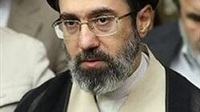The UNESCO Battle - From Saving the Temples of Abu Simbel to the Anticipated Great Victory of Archaeologist Khaled El-Anany
Sunday 05/October/2025 - 06:40 PM

Dr. Ahmed Youssef
Paris –
On the morning of March 8, 1960, the French Minister of Culture and renowned writer André Malraux walked out of a meeting with President Charles de Gaulle. The meeting had been devoted to the speech Malraux was to deliver hours later at UNESCO, launching the international campaign to save the temples of Abu Simbel. At that time, Nasser’s Egypt sent its “three giants” to head the delegation: Taha Hussein, Tawfiq al-Hakim, and the Minister of Culture Tharwat Okasha.
Behind the scenes, the French and Egyptian ministers worked hand in hand to finalize the campaign file, assisted by the eminent archaeologist Christiane Desroches Noblecourt. Meanwhile, the two Egyptian intellectual icons in France—Taha Hussein and Tawfiq al-Hakim—used their prestige to mobilize French cultural elites.
De Gaulle and Nasser entrusted the famous French company VINCI with executing the project, surpassing competing proposals from Italy and Britain. The United States (after Nasser bypassed the World Bank crisis over financing the High Dam) and Spain provided the necessary funding. Thus, the rescue mission began.
But Al-Bawaba now reveals a secret for the first time: another hero of this story was UNESCO’s Director-General, the great philosopher René Maheu. He had close personal ties with Tharwat Okasha, who invited him to lecture in Egypt, where he also met President Nasser (Al-Bawaba possesses transcripts of his lectures in Cairo).
Tharwat Okasha once told me, in meetings at his home in Maadi and later on the coast, that the success of the Abu Simbel project was due above all to the political support it enjoyed—particularly France’s endorsement—and to the strong relationship between UNESCO’s Director-General and himself. He added that René Maheu had even wanted to nominate an Egyptian to succeed him, but African states insisted on nominating Ahmed Mokhtar M’Bow.
That candidacy remained a long-standing Egyptian and Arab dream, until the great minister Farouk Hosni came forward—only to fall victim to heavy conspiracies and lose the race by a single vote. Later came Ambassador Moshira Khattab, but the conditions in Egypt and the region at the time, along with errors in the campaign, did not allow her to win.
Now, however, the great dream seems on the verge of fulfillment. If the distinguished minister and renowned archaeologist Dr. Khaled El-Anany finds the right circumstances—backed by unified support from Egypt, especially the political leadership, along with the intelligent and carefully managed campaign of Ambassador Alaa Youssef, and with broad Arab endorsement—the victory may finally be his.
Is it mere coincidence that Egypt’s very first battle at UNESCO concerned the campaign to save its immortal antiquities, and that today Egypt and the Arab world are nominating a scholar firmly rooted in archaeology? Can the world ever forget the majestic Pharaohs’ Golden Parade in Cairo, which was organized under his leadership?
“There is no coincidence,” as the French proverb says: “If you arrive too early, your time has not yet come. If you arrive too late, your time has passed.” Today, it seems Dr. Khaled El-Anany has arrived at precisely the right moment.









